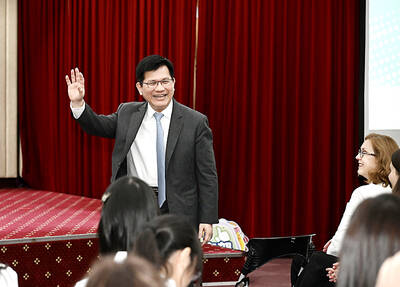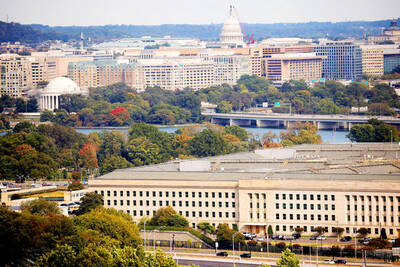Always Coca-Cola? Not if Bolivia's coca growers have their way.
The farmers want the word "Coca" dropped by the US soft drink company, arguing that the potent shrub belongs to the cultural heritage of this Andean nation, where the coca leaf infuses everyday life and is sacred to many.
A commission of coca industry representatives advising the assembly rewriting Bolivia's Constitution passed a resolution on Wednesday calling on the Atlanta, Georgia-based company to take "Coca" out of its name and asking the UN to decriminalize the leaf.
The resolution demands that "international companies that include in their commercial name the name of coca (example: Coca Cola) refrain from using the name of the sacred leaf in their products."
The commission, which met for three days in Sucre, 410km southeast of La Paz, follows an effort spearheaded by Bolivian President Evo Morales to rehabilitate the image of plant, revered in the Andes for millennia but better known internationally as the base ingredient of cocaine.
Coca-Cola released a statement on Thursday saying their trademark is "the most valuable and recognized brand in the world" and was protected under Bolivian law.
The statement repeated the company's past denials that Coca-Cola has ever used cocaine as an ingredient -- but was silent on whether the natural coca leaf was used to flavor their flagship soda.
Bolivian coca growers say that only a few years ago the company used to purchase tons of their leaves annually. They express frustration that Coca-Cola can use their beloved coca leaf -- yet not defend it to a suspicious world.
"Instead of satanizing the leaf, they need to understand our situation," said David Herrera, a state government supervisor for the coca-rich Chapare region. "They exported coca as a raw material for Coca-Cola, and we can't even freely sell it in Bolivia."
The Bolivian government regulates the sale of coca to prevent use by the drug trade.
In its natural state, the green leaf is only a mild stimulant. In Bolivia's white-collar offices, coca tea is served instead of coffee, and the country's farmers, miners and longhaul truckers chew the leaf to get through a long work day.
The government wants the UN to decriminalize trade in coca-based products to promote its exports.
Morales, a former coca grower, believes an international market for coca-derived products such as tea, flour, liquor and even toothpaste would draw some of the country's estimated 26,500 hectares of coca away from the drug trade.
But the US, which funds a Bolivian coca-eradication program, is adamantly opposed to the policy, saying it only encourages more coca production.
Meanwhile, the Peruvian government suspended the coca leaf eradication program in a northern region hit by growers' protests, the agriculture minister said on Thursday.
Juan Jose Salazar told Canal N television he signed an accord with coca growers to halt the eradication for at least 10 days in Tocache, a longtime target of US-backed programs to eradicate the crop.
Peru is the world's No. 2 producer of coca leaf and cocaine, after Colombia. The US has earmarked nearly US$500 million in anti-narcotics aid to the country in the past five years.

FIREPOWER: On top of the torpedoes, the military would procure Kestrel II anti-tank weapons systems to replace aging license-produced M72 LAW launchers Taiwan is to receive US-made Mark 48 torpedoes and training simulators over the next three years, following delays that hampered the navy’s operational readiness, the Ministry of National Defense’s latest budget proposal showed. The navy next year would acquire four training simulator systems for the torpedoes and take receipt of 14 torpedoes in 2027 and 10 torpedoes in 2028, the ministry said in its budget for the next fiscal year. The torpedoes would almost certainly be utilized in the navy’s two upgraded Chien Lung-class submarines and the indigenously developed Hai Kun, should the attack sub successfully reach operational status. US President Donald Trump

Taiwan Semiconductor Manufacturing Co (TSMC, 台積電) is expected to start construction of its 1.4-nanometer chip manufacturing facilities at the Central Taiwan Science Park (CTSP, 中部科學園區) as early as October, the Chinese-language Liberty Times (the Taipei Times’ sister newspaper) reported yesterday, citing the park administration. TSMC acquired land for the second phase of the park’s expansion in Taichung in June. Large cement, construction and facility engineering companies in central Taiwan have reportedly been receiving bids for TSMC-related projects, the report said. Supply-chain firms estimated that the business opportunities for engineering, equipment and materials supply, and back-end packaging and testing could reach as high as

ALL QUIET: The Philippine foreign secretary told senators she would not respond to questions about whether Lin Chia-lung was in the country The Ministry of Foreign Affairs on Wednesday confirmed that a business delegation is visiting the Philippines, but declined to say whether Minister of Foreign Affairs Lin Chia-lung (林佳龍) is part of the group, as Philippine lawmakers raised questions over Lin’s reported visit. The group is being led by Deputy Minister of Agriculture Huang Chao-chin (黃昭欽), Chinese International Economic Cooperation Association (CIECA) chairman Joseph Lyu (呂桔誠) and US-Taiwan Business Council (USTBC) vice president Lotta Danielsson, the ministry said in a statement. However, sources speaking on condition of anonymity said that Lin is leading the delegation of 70 people. Filinvest New Clark City Innovation Park

DEFENSIVE EDGE: The liaison officer would work with Taiwan on drones and military applications for other civilian-developed technologies, a source said A Pentagon unit tasked with facilitating the US military’s adoption of new technology is soon to deploy officials to dozens of friendly nations, including Taiwan, the Financial Times reported yesterday. The US Department of Defense’s Defense Innovation Unit (DIU) is to send a representative to collaborate with Taiwan on drones and military applications from the semiconductor industry by the end of the year, the British daily reported, citing three sources familiar with the matter. “Drones will certainly be a focus, but they will also be looking at connecting to the broader civilian and dual-use ecosystem, including the tech sector,” one source was